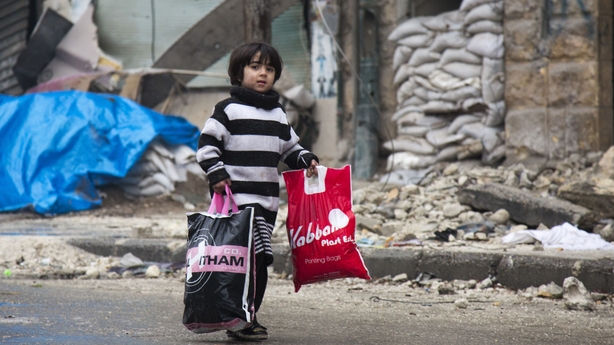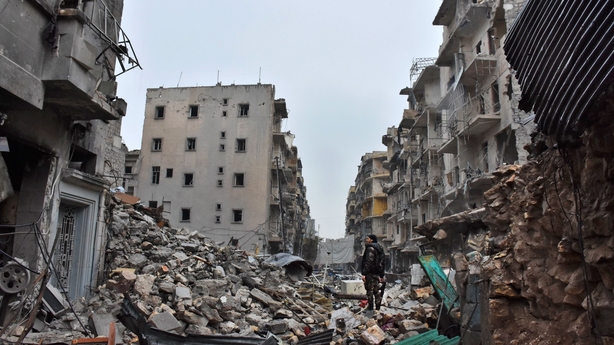Rebel resistance in the Syrian city of Aleppo has ended after years of fighting and months of bitter siege and bombardment, as insurgents this evening agreed to withdraw in a ceasefire.
The battle of Aleppo, one of the worst of a civil war that has drawn in global and regional powers, has ended with victory for Syrian President Bashar al-Assad and his military coalition of Russia, Iran and regional Shia militias.
For rebels, their expected departure with light weapons starting tomorrow morning for opposition-held regions west of the city is a crushing blow to their hopes of ousting Mr Assad after revolting against him during the 2011 Arab uprisings.
However, the war will still be far from over, with insurgents retaining their rural stronghold of Idlib province to the southwest of Aleppo, and the jihadist Islamic State group holding swathes of the east and recapturing Palmyra this week.
"The fighters are going to leave the city," Russian UN Ambassador Vitaly Churkin told reporters in New York.
Rebel officials said fighting would end tonight and a source in the pro-Assad military alliance said the evacuation of fighters would begin at around dawn.
A Reuters reporter in Aleppo has said the booms of the bombardment could no longer be heard tonight.
Fighters and their families, along with civilians who have thrown in their lot with the rebels, will have until tomorrow evening to quit the city, a Turkish government source said.
The ceasefire was negotiated by Turkey and Russia.
A commander with the Jabha Shamiya rebel group said that Aleppo was a moral victory for the insurgents.
"We were steadfast ... but unfortunately nobody stood with us at all", the commander, who declined to be identified, told Reuters.

The plight of civilians has caused global outrage in the wake of a sudden series of advances by the Syrian army and its allies across the rebel enclave over the past two weeks.
"We appear to be witnessing nothing less than an all-out effort by the Syrian government and its allies to end the country's internal conflict through a total uncompromising military victory," UN Secretary-General Ban ki-Moon told the Security Council earlier this evening.
The rout of rebels from their ever-shrinking territory in Aleppo sparked a mass flight of terrified civilians and insurgents in bitter weather, a crisis the United Nations said was a "complete meltdown of humanity".
There were food and water shortages in rebel areas with all hospitals closed.
The United Nations earlier voiced deep concern about reports it had received of Syrian soldiers and allied Iraqi fighters summarily shooting dead 82 people in recaptured east Aleppo districts.
It accused them of "slaughter".
"The reports we had are of people being shot in the street trying to flee and shot in their homes," said UN spokesman Rupert Colville. "There could be many more."
 The Syrian army has denied carrying out killings or torture among those captured, and its main ally Russia said rebels had "kept over 100,000 people in east Aleppo as human shields".
The Syrian army has denied carrying out killings or torture among those captured, and its main ally Russia said rebels had "kept over 100,000 people in east Aleppo as human shields".
An official with an Aleppo rebel group said the bulk of about 50,000 people were expected to be evacuated.
A Syrian military source said the evacuation of fighters would start at 3am Irish time tomorrow.
The source said fighters' families would also leave, but did not mention othercivilian evacuations.
Behind those fleeing was a wasteland of flattened buildings, concrete rubble and bullet-pocked walls, where tens of thousands had lived until recent days under intense bombardment even after medical and rescue services had collapsed.
The once-flourishing economic centre with its renowned ancient sites has been pulverised during the war which has killed more than 300,000 people, created the world's worst refugee crisis.

